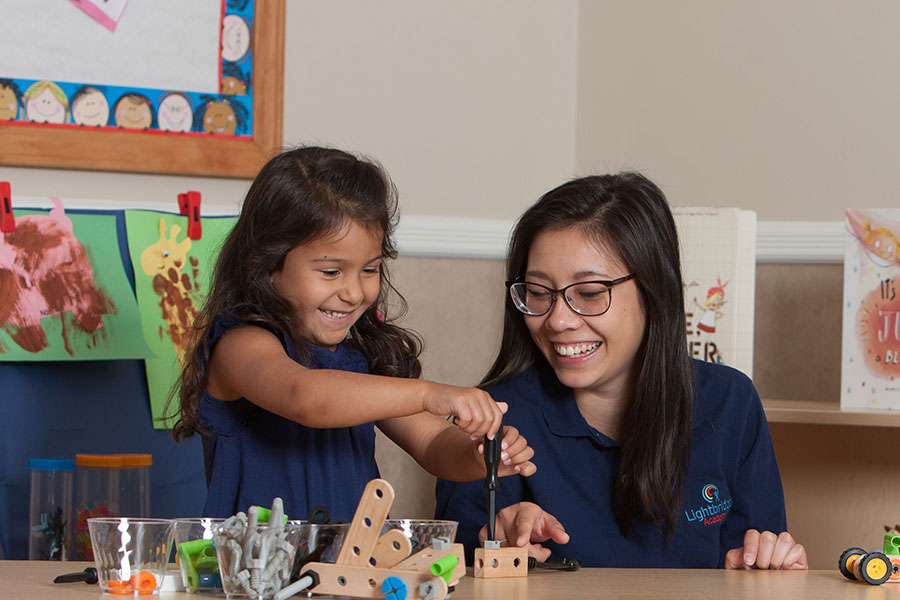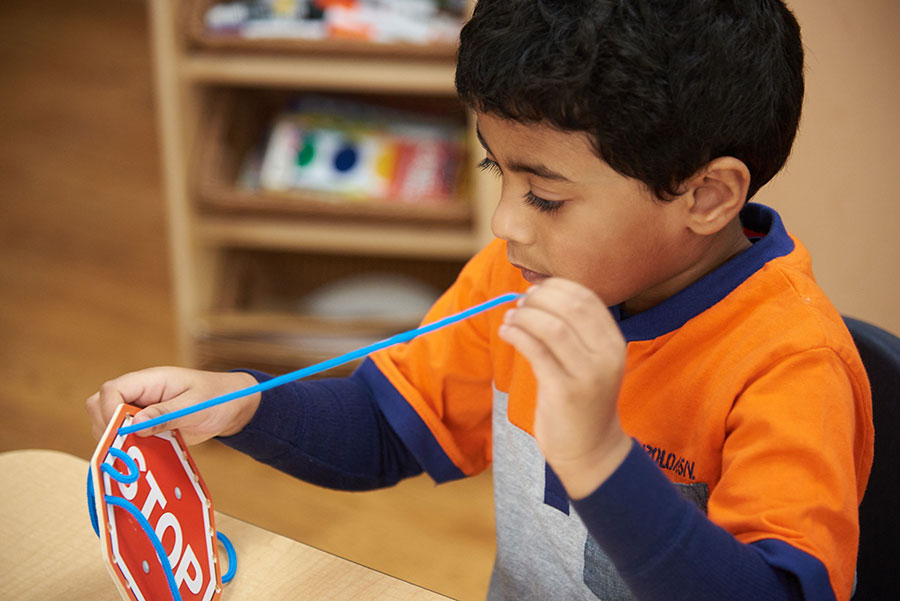Early childhood, the period from birth through the age of 5, is one of the most formative times in a child’s life. The four main areas of development are motor (physical), language and communication, cognitive and social/emotional.
Cognitive development means how children think, explore and make sense of the world around them. What they learn during this time period, and the way they interact with others, will impact how they navigate the rest of their lives. Brain development is part of cognitive development.
Parents play a prominent role in fostering a baby’s development provides a strong foundation for success in school and life. As an example, research shows that children who can identify sounds at six months of age are better at acquiring the skills for learning to read at four and five years of age.
Whether expectant parents are setting up their baby’s bedroom or parents of newborns are enjoying their precious little arrival, they aid in their child’s early cognitive development in these five ways.
Reading to babies, even in utero. Parents should fill their baby’s life with language and literature. They can do this by developing a print-rich environment where books, magazines and letters are all around the baby and easy for the baby to see and reach. This can be difficult in today’s tech-focused world, where so much literature is displayed on electronic devices, but it’s far from impossible. From children’s books to cookbooks to coffee-table books, there are many ways to incorporate literature into the home. Even if babies only chew on these items, parents can consider this tactile engagement with books a success. After all, babies grow fast, and they’ll be able to identify pictures and words in no time!
Become fluent in ‘parentese’. Speaking in “parentese” (sounds like “Portuguese”) is crucial to a baby’s cognitive development. Parentese involves speaking in an exaggerated and repetitive way. It’s all about having inflection in one’s voice, using an intonation at the end of a word or sentence and letting babies see the corresponding facial expressions. Speaking to your babies like this helps them learn receptive language, which, according to scientific research, makes children more responsive.
Lots of positive touch. Research has shown that positive human touch is critical for babies. Cuddling, kissing, hugging, rubbing—all of these things help babies develop neurons and hardware for the brain. Every hug and giggle and lullaby is creating a neural pathway to an emotionally stable life for your child….and you!
Plenty of normal talk. Children with chatty parents are more likely to have a better vocabulary. Babies should also be able to listen to their parents talk on the phone and to each other. Moms and dads can talk to their babies the way they would talk to an adult. They can tell their babies about their day, ask their babies about their days and even tell them jokes. Babies, after all, do love the sound of their parents’ voices. Plus, parents can enjoy the fact that their children still find them funny!
Use sequence talk. In addition to pointing out and naming things for babies, parents can also note the sequence in which tasks will get done: “Mommy is going to give you some food at the brown table”; “First, we will brush our teeth and then we’ll put our clothes on”; or “We’re going to pick out a book to read and go to bed.” Even if your baby can’t say or understand these things just yet, saying them out loud and using a positive tone will help show sequence, which is the beginning of learning math. The more specific and sequential parents can be, the better they prepare their child for cognitive growth.
Cognitive development may sound like a complicated, abstract topic, but the truth is that many parents are already engaging in the types of behaviors that encourage early cognitive development in their little ones. By making sure to frequently speak to their baby—not to mention giving their babies all of the loving cuddles and hugs and kisses possible—parents are setting their little ones up for both excellent cognitive development and long-term emotional stability.





